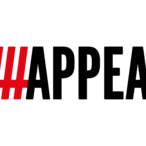The recent acquittal of Metropolitan Police firearms officer Martyn Blake has sparked critical conversations about police accountability and prosecution decisions in the criminal legal system. Blake shot and killed Chris Kaba, an unarmed Black man, during a vehicle stop in Streatham, London, in September 2022.
The case is a stark reminder of the high threshold required to convict police officers and the rarity of such prosecutions in England and Wales. The statistics evidence this; since 1990 there have been 1,904 deaths recorded by INQUEST in or following police custody or contact, with only one officer convicted of manslaughter and none for murder. While Black people are 16 times more likely than white people to be prosecuted under joint enterprise. This article will serve as a reminder of the contrast in treatment and prosecution of young Black men implicated under joint enterprise laws from point of charge to end of trial and police officers who directly cause the death of an individual.
Overpoliced and under protected
Blake’s acquittal has led to the portrayal of Chris Kaba’s death as a tragic but duty-bound incident, with discourse around Chris’ alleged ‘gang ties’ surfacing post-verdict. This is an all-too-familiar narrative used to dehumanise unarmed Black victims of police violence such as Mark Duggan, and often evoked in the prosecution of young Black men and children under ‘joint enterprise’ – a legal principle allowing multiple people to be prosecuted for one crime.
The Metropolitan Police Federation have since argued that Blake should never have been prosecuted, while the Crown Prosecution Service stand by their decision. Following concerns about the trauma Blake faced in going to trial, the Home Secretary has announced further protections for police officers, including an anonymity presumption for firearms officers subject to criminal trial following a police shooting, unless convicted.
For many, this case epitomises the phrase ‘overpoliced and under protected’, used to describe the relationship between Black communities and the police. A deep sense of racial injustice is evoked when you view the case alongside the collective prosecution of young Black men and children for violent offences, often when they did not carry out any harm. The Manchester Ten case is a prime example: ten Black teenagers were convicted of violent conspiracy offences largely based on their involvement in a Telegram chat, despite most having carried out no harm.
The Racialised Weight of Justice
Whilst joint enterprise and other multi-defendant cases differ significantly to Blake’s case from the legal aspect, the general contrasts are glaring. Young Black men and children are routinely held on remand for years, with names of those over 18 publicised at the point of charge. For those acquitted, there is little public concern about the trauma they endured, and they are left to rebuild lives disrupted by imprisonment. Black children in England and Wales are more likely to be held on remand. As of Jan 2022, the statistics revealed that while Black children account for 4% of the 10-17 year old population (Census data, 2011), 34% of the children in custody on remand are Black children. On the other hand, Blake and other officers, who have been tried for causing serious harm or the death of an individual – have not had to spend time on remand.
The harm caused by Blake’s actions extends far beyond the individual tragedy. Chris Kaba’s death exemplifies a profound racialised harm, where an unarmed Black man’s life is cut short by an agent of the state, sparking collective grief within communities already burdened by police violence. Blake’s identity was initially shielded from media exposure due to safety and security reasons prior to the anonymity order being lifted. While his identity now remains public, his pictures and personal details cannot come into the eyes of the public. However, the state’s response, proposing further anonymity for officers involved in fatal shootings, reinforces a sense of impunity that denies the full humanity and suffering of victims of fatal police shootings and those who experience Chris’ death as part of a broader pattern of racialised and unaccountable state violence.
In contrast, young Black men and boys implicated under joint enterprise, as well as their families and wider communities, bear the brunt of a punitive system. Whilst acknowledging the tragic loss of life at the centre of some joint enterprise cases, the contrast difference between the treatment of Martyn Blake and of often non-violent Black men and boys illustrates the unequal dispensation of accountability and compassion, highlighting a systemic disparity that demands attention.
Since the summer of 2024, APPEAL has been examining joint enterprise cases, with findings to be published next year. These findings echo decade-long concerns raised by communities, campaigners and academics. Despite the Labour governments commitment to reform joint enterprise, meaningful action has not yet been taken – another stark contrast to the Home Secretary’s swift and unhesitating policy response to Blake’s acquittal.







